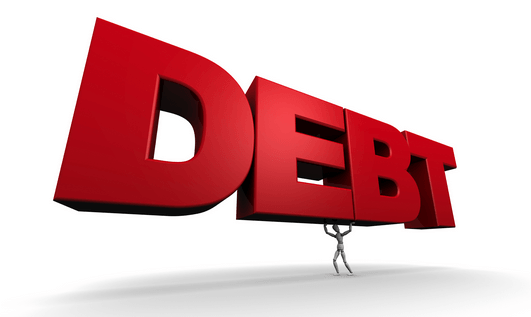
Indeed, COVID-19 has veered the economic activities of most African nations off the progressive development track; almost all African economies, including Ghana are struggling to patch the economic holes created by the menacing COVID-19 pandemic.
In the wake of the unexpected outbreak, African countries’ ability to honour their debt obligations has become a strong challenge. As a result, debt relief including debt restructuring, debt postponement, and debt cancellation have become inevitable in the chequered post-independence history of many African economies.
Africa’s total gross domestic product (GDP) for 2019 was estimated at US$2.580 trillion. Statistics released by the African Development Bank revealed Africa’s projected GDP growth rate for 2020 is 3.9%, implying projected total GDP of US$2.681 trillion during the period. As of February 2020, eight of the fifteen fastest growing economies in the world were African countries. However, this remarkable economic feat was short-lived by the novel COVID-19 pandemic.
Many African economies and their respective leaders were believed not to be frugal in spending donor funds and financial support from the Breton Woods institutions and other bilateral and multilateral financial agencies. Even though Africa’s estimated total population (1.334 billion) represents about 17.1% of the world’s total population of about 7.8 billion people, the continent’s contribution (US$2.580 trillion) to global GDP (US$87.265 trillion) in 2019 hovered round 3% (2.96%). Some economic experts argued Africa’s total contribution to global GDP could have been phenomenal in prior years if leaders were strongly committed to their respective national development and growth agenda.
In spite of the high and perceived levels of corruption in Africa in prior years, the last two decades have been characterised by tremendous improvements in democratic governance. Economic connoisseurs argued accelerated policy reforms could help the continent increase its wealth to about US$5.6 trillion within five years.
Prior to COVID-19, many African economies exhibited improvements in governments’ accountability to the people; life expectancy has increased by more than ten years; basic health provision has witnessed improvements while mortality rates among children and pregnant women have reduced considerably. Further, civil societies and pressure groups in Africa are beginning to find their voices; they are able to hold elected governments and their agencies accountable for their stewardship.
Notwithstanding the seemingly aggressive preventive measures adapted by Africa in the fight against COVID-19, the pandemic continued to spread on the continent. The World Bank (2020) predicted the COVID-19 pandemic is more likely to plunge the entire African economy into its maiden continent-wide recession in twenty-five (25) years. It predicted Africa’s economic growth in 2020 would range from -2.1% to -5.1%. The World Bank’s analysis indicated COVID-19 could cost the African economy between US$37 billion and US$79 billion in economic losses in 2020. Similar analysis by the Economic Commission for Africa (ECA) revealed Africa’s economic losses from COVID-19 are in billions of United States dollars; oil exporting economies in Africa could lose up to US$65 billion in revenues from crude oil in 2020.
Dahir (2020) believed the economic cost of the COVID-19 pandemic to Africa could be estimated at 2.1% of GDP; McKinsey (as cited in Dahir, 2020) predicted the African economy could lose between US$90 billion and US$200 billion in revenues to COVID-19; the pandemic could result in about 20 million job losses while an estimated 15% of foreign direct investment (FDI) may be lost.
The ECA (2020) noted the continent could lose about US$101 billion in fuel revenues while US$10.6 billion would be required to mitigate unanticipated increases in health spending during the period. A report released by the African Union (AU) estimated the continent’s total economic losses from COVID-19 at US$270 billion (Business & Financial Times, 2020).
This translates into about 10.1% (US$270 billion ÷ US$2.681 trillion) x 100% = 0.1007087 x 100% = 10.070869 = 10.1%) of Africa’s projected GDP (US$2.681 trillion) for 2020; and equivalent to 10.47% (US$270 billion ÷ US$2.250 trillion) x 100% = 0.104651 x 100% = 10.465116 = 10.47%) of total GDP (US$2.580 trillion) for 2019. McKinsey’s (as cited in Dahir, 2020) projected revenue losses (US$90 billion – US$200 billion) imply estimated economic losses ranging from 3.36% to 7.46% of projected GDP for 2020. Based on the foregoing, we could state Africa’s estimated economic losses from COVID-19 range from 3.36% to 10.1% of projected GDP for 2020.
Pilling (2020) revealed about one-fifth (1/5) of Africa’s total debt is owed to China, bilateral and multilateral agencies. Africa’s total debt is estimated at US$700 billion with about US$44 billion due for payment in 2020. Debt relief is a catalyst for economic re-insurgence among African countries in their post-independence era; and especially during and in post-COVID-19 period. Stated differently, debt relief has become a major financial desideratum for the liberation of the entire African economy during and after COVID-19.
Pilling (2020) described the quantum of debt relief (US$44 billion) sought after by Africa in 2020 as trivial and rounding error comparative to bailouts granted to western economies. He concluded Africa’s win in the fight against COVID-19 is a win to the global community. To wit, the time to provide massive debt cancellations; and to provide financial and other logistics to ensure Africa weans herself off the devastating COVID-19 pandemic is now.
The writer is the Chartered Economist/Business Consultant.
The post The need for debt relief for Africa appeared first on The Business & Financial Times.
Read Full Story

















Facebook
Twitter
Pinterest
Instagram
Google+
YouTube
LinkedIn
RSS